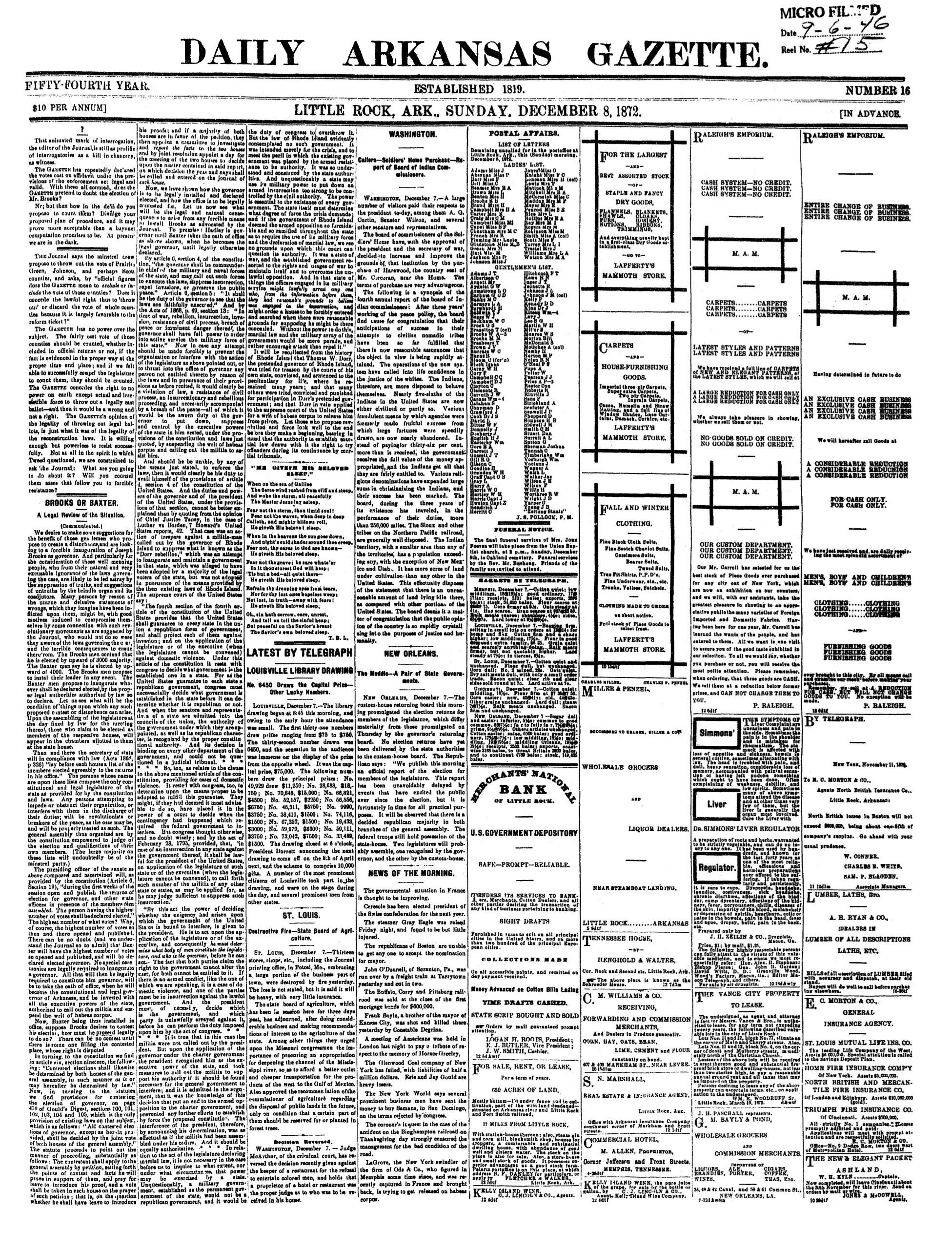
« 1872 »
Big things were happening in 1872 as Arkansas struggled through Reconstruction — Arkansas Industrial University (now University of Arkansas) held its first session with seven boys and one girl in attendance; Arkansas College (now Lyon College) was established in Batesville; Yellowstone became America’s first National Park; Susan B. Anthony and 15 suffragists voted in Rochester, N.Y., albeit illegally; Victoria Woodhull became the first woman to run for president of the United States; the Denckla block (now the Capital Hotel) was erected in Little Rock; President Ulysses S. Grant signed the Amnesty Act restoring civil rights to many former Confederates; and the seed was planted for the Brooks-Baxter War of 1874 — which is how we ended up with a siege gun parked in front of the modern day Old State House Museum.
The Nov. 5, 1872, governor’s race was fraught with problems — voter fraud, intimidation and, some historians argue, even sabotage. The Daily Arkansas Gazette reported many issues including places where “two polls were opened, but only those votes cast at the regular polls were certified to the secretary of state” and of people voting multiple times.
The gubernatorial contest was between Joseph Brooks, a carpetbagger and leader of the Brindletails (reform/liberal Republicans) and Elisha Baxter, a Minstrel (Regular Republicans) scalawag.
Hostile to the ruling Republicans, the Gazette editors were concerned about election fairness from the start, encouraging every eligible voter to register and tending to prioritize this over a particular candidate — the choice being between two evils for the Democrats. Both candidates supported amnesty for disenfranchised ex-Confederates, but differed on universal suffrage and rights of the freedmen.
In its election results coverage a week after the election the Gazette noted that “the same system of frauds was practiced as characterized the election of 1868 and 1870.”
On this Page 1 from Dec. 8, 1872, the Gazette editors quibble with The Journal, the organ of the Brindletails, regarding how the votes should be counted.
Below that is “Brooks or Baxter. A Legal Review of the Situation. (Communicated.)” — a lengthy editorial outlining how the situation should be resolved based on the author’s interpretation of the law.
Allegations of fraud continued into 1873, but eventually Baxter was declared the winner with 41,681 votes to Brooks’ 38,415 — although votes from four counties were thrown out. Had those votes been counted, Brooks likely would have won.
Elisha Baxter, the state’s last Republican governor for nearly 100 years, was inaugurated on Jan. 6, 1873.
— Kelly Brant
You can download a PDF by clicking the image, or by clicking here.
